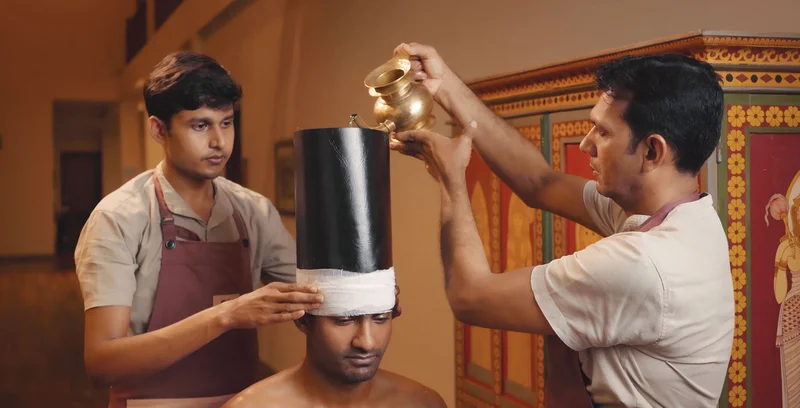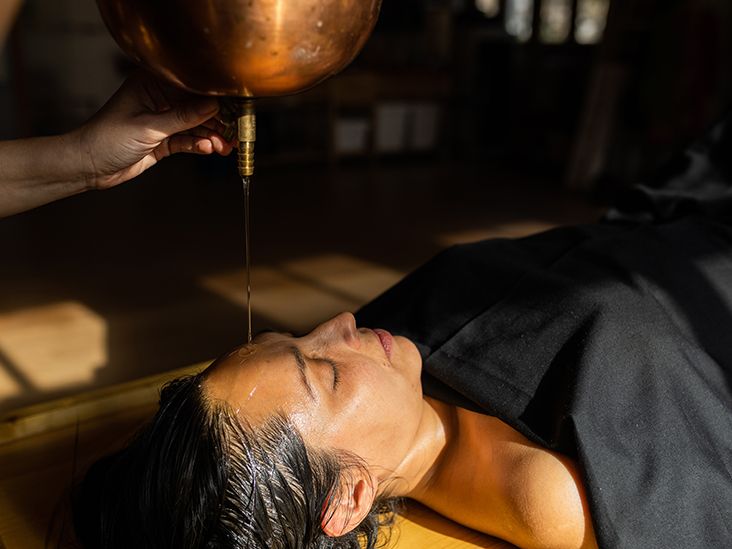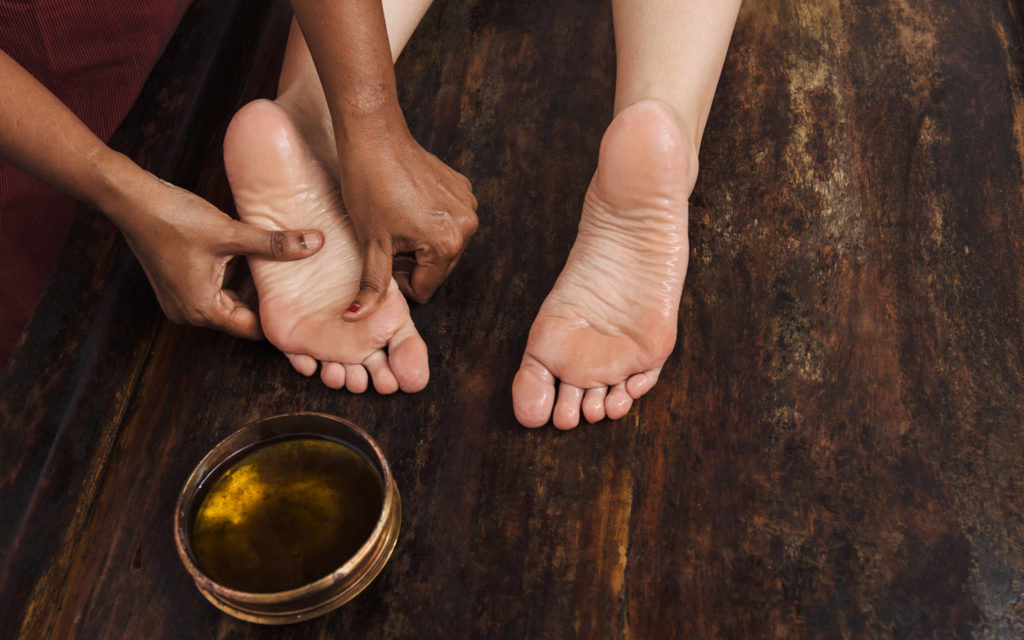Ask Ayurvedic doctor a question and get a consultation online on the problem of your concern in a free or paid mode. More than 2,000 experienced doctors work and wait for your questions on our site and help users to solve their health problems every day.
Neurological

Ayurveda for neurological disorders
TAyurveda, the ancient system of healing, offers a holistic approach to treating neurological disorders by addressing the root causes of imbalance in the body and mind. According to Ayurvedic principles, neurological issues arise when there is a disturbance in the body’s doshas—Vata, Pitta, and Kapha—leading to an imbalance in the nervous system. Ayurveda focuses on restoring this balance through natural treatments, including herbs, diet, lifestyle changes, and therapies, to promote overall neurological health. By nurturing both the physical and mental aspects of well-being, Ayurveda helps alleviate symptoms of various neurological disorders, including Alzheimer’s, Parkinson’s, epilepsy, and more.
How can an Ayurvedic doctor help with disorders of neurological system?
An Ayurvedic doctor can play a pivotal role in managing and treating disorders of the neurological system by addressing the root causes of imbalances within the body. Ayurveda takes a holistic approach to health, considering the physical, mental, and emotional aspects of a person. Here’s how an Ayurvedic doctor can help with neurological disorders:
1. Diagnosing Dosha Imbalances
Ayurvedic doctors begin by assessing the balance of the three doshas—Vata, Pitta, and Kapha—since an imbalance in these vital energies often leads to neurological issues. Vata dosha, in particular, governs the nervous system, and any disruption can lead to conditions like anxiety, tremors, or even memory loss. By identifying the specific dosha that is out of balance, an Ayurvedic doctor can create a tailored treatment plan.
2. Personalized Treatment Plans
Based on the individual’s constitution (Prakriti), Ayurvedic history, and symptoms, the doctor creates a personalized treatment plan. This plan includes:
- Herbal Remedies: Ayurvedic herbs like Brahmi, Ashwagandha, Vacha, and Shankhapushpi are often recommended to improve memory, reduce stress, and support nerve regeneration. These herbs are known for their neuroprotective and rejuvenating properties.
- Dietary Changes: Ayurveda emphasizes the importance of a balanced diet that supports neurological health. Foods rich in antioxidants, omega-3 fatty acids, and vitamins (like B12 and D) are recommended, along with avoiding foods that aggravate the doshas, especially Pitta and Vata.
3. Panchakarma (Detoxification)
One of the cornerstones of Ayurvedic healing is Panchakarma, a detoxification process that cleanses the body of toxins (ama) and restores internal balance. For neurological disorders, Panchakarma treatments such as Abhyanga (oil massage), Shirodhara (oil pouring on the forehead), and Nasya (nasal therapy) are particularly beneficial. These therapies help to nourish the nervous system, calm the mind, and improve circulation, aiding in the recovery of nerve cells.
4. Stress Management
Stress is a major factor that exacerbates neurological disorders. Ayurveda recognizes the connection between mind and body, and an Ayurvedic doctor will recommend meditation, yoga, pranayama (breathing exercises), and other relaxation techniques to calm the mind and reduce stress, which can help prevent or alleviate symptoms of conditions like anxiety, epilepsy, and even Parkinson’s disease.
5. Restoring Balance with Lifestyle Modifications
Ayurvedic doctors also suggest lifestyle changes to support neurological health. Regular sleep patterns, exercise routines, and mental relaxation practices are encouraged. Sleep is especially important for neurological recovery, as it allows the body to repair tissues and rejuvenate the nervous system.
6. Nerve Regeneration
For conditions such as multiple sclerosis and neuropathy, Ayurveda focuses on regenerating damaged nerve tissues. Herbs like Jatamansi and Ashwagandha are used to stimulate the growth of nerve cells and improve the function of the nervous system.
7. Holistic Mental and Emotional Care
Ayurveda believes in treating the body and mind as a whole. An Ayurvedic doctor may guide patients in emotional healing and mental clarity. Understanding the mental and emotional roots of neurological symptoms is key to resolving them. Ayurvedic practitioners may use techniques such as aromatherapy and mantras to enhance mental clarity and emotional stability.
8. Support for Chronic Conditions
Neurological conditions such as Alzheimer’s disease or Parkinson’s disease can be managed with Ayurvedic therapies that focus on slowing the progression of the disease. By balancing the doshas and improving the overall health of the nervous system, Ayurvedic treatments can enhance quality of life and reduce symptoms.

What Causes Neurological sysytem?
The neurological system, comprising the brain, spinal cord, and nerves, is the intricate network responsible for transmitting signals throughout the body, enabling communication between cells and organs. It is primarily driven by the electrical activity of nerve cells, or neurons. Neurons use neurotransmitters to transmit signals across synapses, forming the basis for various physiological and cognitive functions. The causes of the neurological system lie in the complex interplay of genetic factors, environmental influences, and intricate biochemical processes. Disruptions in this delicate balance can contribute to a wide range of neurological conditions, highlighting the intricate nature of this vital system in governing human physiology and cognition.
Ways to Prevent neurological problems According to Ayurveda
-
Nutrient-Rich Diet: Adopt a diet rich in omega-3 fatty acids, antioxidants, and whole grains to support brain health.
-
Herbal Support: Include Ayurvedic herbs like Ashwagandha and Brahmi for neuroprotection and stress reduction.
-
Daily Routine: Follow a consistent daily routine to promote overall health and balance in the nervous system.
-
Yoga and Meditation: Engage in regular yoga and meditation practices to reduce stress and enhance neurological well-being.
-
Consult Ayurvedic Practitioner: Seek guidance from an Ayurvedic practitioner for personalized recommendations based on individual constitution and health concerns.
Some Common Neurological disorders
Some common neurological disorders include:
- Alzheimer's Disease: A progressive condition that causes memory loss, confusion, and changes in behavior, often affecting older adults.
- Parkinson's Disease: A neurodegenerative disorder that primarily affects movement, leading to tremors, stiffness, and difficulty with balance and coordination.
- Multiple Sclerosis (MS): An autoimmune disease that affects the central nervous system, causing symptoms such as fatigue, muscle weakness, and impaired coordination.
- Epilepsy: A condition characterized by recurrent seizures, caused by abnormal electrical activity in the brain.
- Stroke: A medical emergency where blood flow to part of the brain is interrupted, leading to sudden neurological symptoms such as weakness, numbness, or difficulty speaking.
- Migraine: A type of headache disorder often accompanied by severe pain, nausea, and sensitivity to light and sound.
- Amyotrophic Lateral Sclerosis (ALS): Also known as Lou Gehrig’s disease, it is a progressive neurodegenerative disease that affects nerve cells in the brain and spinal cord, leading to muscle weakness and atrophy.
- Huntington’s Disease: A genetic disorder that causes the progressive breakdown of nerve cells in the brain, leading to movement disorders, cognitive decline, and psychiatric symptoms.
- Neuropathy: Damage to peripheral nerves, often causing pain, numbness, or weakness, commonly resulting from diabetes or other health conditions.
- Dementia: A general term for a decline in cognitive function, affecting memory, thinking, and behavior, with Alzheimer’s disease being the most common cause.
How Ayurveda Can Help Neurological sysytem?
Ayurveda provides comprehensive support for the neurological system by emphasizing a holistic approach to health. Through tailored dietary plans, incorporating neuroprotective herbs and supplements, and promoting practices like yoga and meditation, Ayurveda aims to reduce stress, improve cognitive function, and enhance overall neurological well-being. The emphasis on balancing individual constitutions (doshas) and addressing root causes makes Ayurveda a valuable ally in preventing and managing neurological issues. Consulting with an Ayurvedic practitioner allows for personalized strategies, fostering a harmonious environment within the body and mind for optimal neurological health.
Why Choose Ayurveda for Neurological sysytem?
Choosing Ayurveda for the neurological system is opting for a holistic and personalized approach to well-being. Ayurveda, with its emphasis on balancing individual doshas, offers targeted dietary recommendations, herbal formulations, and lifestyle practices that specifically support neurological health. The natural healing methods and mindfulness techniques, such as yoga and meditation, advocated by Ayurveda contribute to stress reduction and overall cognitive well-being. By addressing the root causes and promoting harmony in the body and mind, Ayurveda stands as a comprehensive and time-tested system for preventing and managing neurological issues, providing an alternative that complements modern medical approaches.
Ayurvedic Wellness for Neurological wellness at Alveda
At Alveda, our Ayurvedic Wellness program for the neurological system embraces a holistic and individualized approach to enhance overall well-being. Through personalized dietary plans, herbal formulations, and therapeutic practices, we aim to support and balance the neurological system. Our program integrates Ayurvedic principles with modern wellness practices, incorporating stress-reducing techniques like yoga and meditation. By focusing on the root causes and restoring harmony within the body, Alveda provides a unique and comprehensive approach to neurological health. Consult with our experienced Ayurvedic practitioners for personalized care and a transformative journey toward optimal neurological well-being.
Conclusion
Ayurveda offers a holistic and effective approach to managing and treating neurological disorders by addressing the root causes of imbalances within the body and mind. With its focus on restoring dosha balance, incorporating neuroprotective herbs, detoxifying therapies like Panchakarma, and promoting mental well-being through stress management practices, Ayurveda can provide long-term relief for a wide range of neurological conditions. By embracing a personalized and natural approach, Ayurveda not only alleviates symptoms but also supports overall neurological health and cognitive function. At Alveda, we combine ancient Ayurvedic wisdom with modern wellness practices, offering tailored treatments to help restore balance, enhance vitality, and promote optimal neurological wellness. Consult our expert Ayurvedic practitioners to begin your journey toward comprehensive neurological well-being today.




